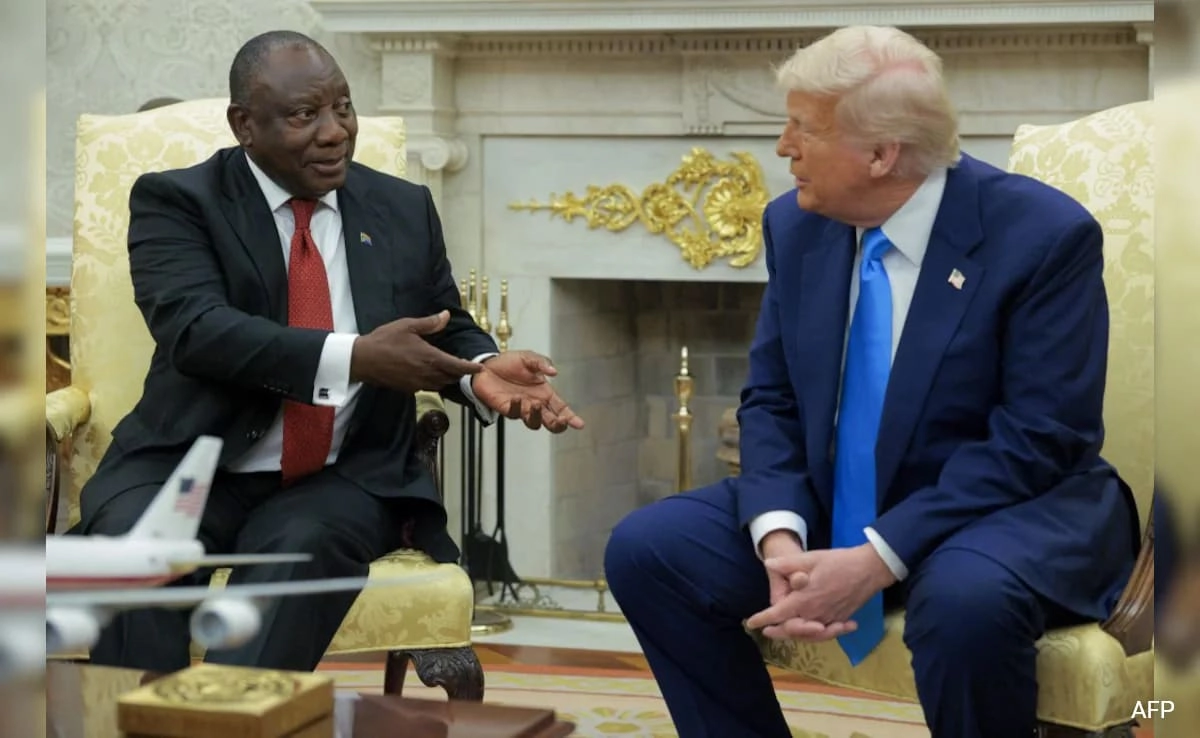In a controversial presentation, former President Donald Trump made headlines by utilizing old videos to support his assertion of an ongoing “white genocide” in South Africa. This claim, which has been widely discredited by experts and organizations monitoring human rights issues, was presented during a rally and subsequently circulated through various media channels. Trump’s rhetoric taps into a deep-seated fear among certain demographics regarding the treatment of white farmers in South Africa, but the portrayal he offers is heavily skewed and lacks context. By showcasing outdated footage, he aimed to amplify the perception of violence and persecution faced by white individuals in the region, thereby framing the narrative as one of existential threat.
Critics quickly pointed out the misleading nature of Trump’s claims, emphasizing that the videos he used were not representative of the current situation in South Africa. Many of the clips were taken out of context or depicted isolated incidents that do not reflect the broader reality of the country, where issues of land reform and racial disparities continue to be complex and multifaceted. The term “white genocide” itself has been widely criticized as a dangerous and inflammatory label, often employed by extremist groups to incite fear and division. South Africa has been grappling with its historical legacy of apartheid and the socio-economic challenges that followed its dismantling, making the simplistic narrative of genocide not only misleading but also harmful to the ongoing discourse surrounding race relations in the country.
The impact of Trump’s assertions extends beyond mere rhetoric; it contributes to a growing polarization around issues of race and identity, both in South Africa and abroad. By framing the situation in such stark terms, he risks exacerbating tensions and fostering a narrative that could incite violence or unrest. Additionally, utilizing such tactics can distract from the real issues at hand, such as the need for comprehensive policies to address land ownership, economic inequality, and social justice. As discussions around race and equity continue to evolve globally, it is crucial for leaders to engage with the complexities of these issues rather than resorting to sensationalism that undermines productive dialogue.
In summary, Trump’s use of old videos to promote the false narrative of white genocide in South Africa highlights the dangers of misinformation and selective storytelling in the political arena. By distorting the realities of a nation grappling with its past, he not only misrepresents the struggles faced by various communities but also perpetuates a cycle of fear and division. As society navigates the intricate dynamics of race and power, it is imperative to prioritize accurate information and foster conversations grounded in empathy and understanding.




